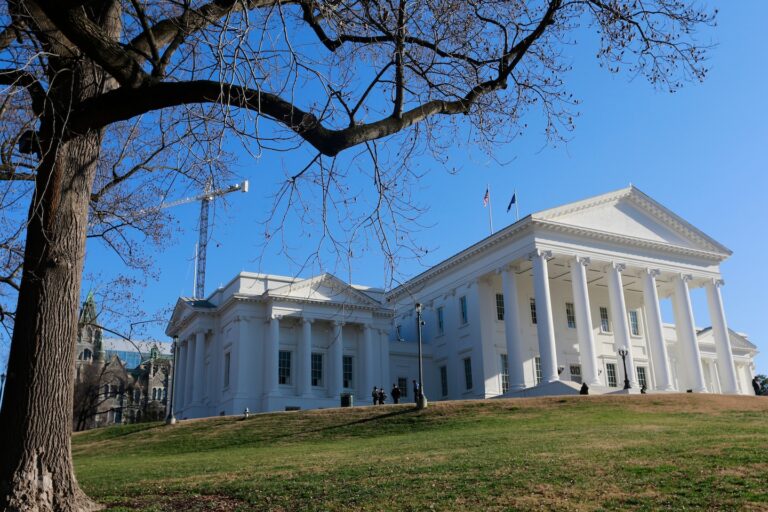“This is a total repeal,” Rep. Luke E. Torian (D-Prince William), the House Appropriations Chairman who introduced the bill Thursday on the House floor, said as he introduced the bill on the floor. Several Richmond groups are now looking at ways to resolve the program’s long-term budget impacts, and “hopefully we’ll have a product that we can all vote on in the 2025 session,” Torian added in an interview with The Washington Post.
The state budget passed earlier this year included language making significant cuts to the program, whose costs have ballooned since it was expanded over the past few years. Thursday’s vote set aside $45 million per year over the next two years to help universities address the costs, on top of the $20 million per year already in the budget.
The VMSDP, which began in the 1930s to help families of soldiers wounded in World War I, has since expanded to include out-of-state residents and relatives of military personnel with non-combat-related disabilities, as well as graduate degrees. Costs have risen from $12 million in 2019 to more than $65 million last year, and universities have had to foot the bill without additional state funding.
A budget proposal passed earlier this year would have limited the program to Virginia residents seeking a bachelor’s degree and would have required families to access federal aid such as Pell Grants before taking advantage of the state program.
Military families and their advocates protested the changes, setting off a wave of political backlash in a state that boasts the nation’s largest population of active-duty military and veterans. The Youngkin administration, which initially called for the cuts, appointed a task force to study the issue and then urged lawmakers to reinstate the exemptions.
House Speaker Don Scott (D-Portsmouth) vowed to have the delegation return to Richmond to reverse the cuts, which the House did on June 28. But the state Senate, also controlled by Democrats, had other ideas. Citing rising costs, Senate leaders, led by Senate President Pro Tempore L. Louise Lucas (D-Portsmouth), tried to keep some of the restrictions in place.
But despite convening senators in Richmond twice in the past few weeks, Democratic leaders were unable to reach an agreement with Republicans on how to handle the issue, even though all sides agreed it needed to be resolved. Finally, earlier this month, the House, Senate and governor’s office all reached a consensus, and a deal was signed into law Thursday.
They also all agreed the problem needs a long-term solution to ensure the program doesn’t get out of control. Youngkin’s task force is expected to recommend changes later this year, as is a Senate-appointed task force. The Legislature’s auditing arm, the Joint Legislative Audit and Review Committee, is also looking at ways to keep the VMSDP in a sustainable way. Lawmakers said they will take up the issue again during the regular legislative session in January.
“We will keep our promises and honor our commitments to these families,” Scott told The Washington Post in an interview, adding that he hopes to incorporate input from veterans and their families to come up with “a solution to continue this program and make it sustainable in the long term.”
“I’m happy we got this done,” House Minority Leader Todd Gilbert, R-Shenandoah, said after the House vote. “It took way too long to get this done. It seemed like every member of the House was singing along to the same tune, but I think the Senate has finally come to its senses.”
In the Senate, Republicans celebrated the agreement, but Sen. Tara Durant (R-Stafford) expressed disappointment that it took multiple special sessions to work it out.
“I’ve heard many people stress that they feel like it has become very costly to honor those who have served our country,” she told the chamber. “And that’s very hurtful.”
Democrats stressed that the program needs further evaluation. Sen. Barbara A. Favola (D-Arlington) questioned the benefits of the program and how universities pay for it, while Senate Majority Leader Scott A. Surovell (D-Fairfax) pushed back against Durant’s remarks.
“No one in this chamber would say that educating veterans is too expensive. The debate from the beginning has not been about the cost, but about who pays for it,” Surovell said on the floor. “The reality is that this program has been so successful that we now have students who receive Pell Grants, students who receive financial aid, students who are paying for their education with loans, and they are the ones who are funding this program, not the taxpayers.”
Dozens of military families attended Thursday’s session. Katie Demko, 54, of Woodbridge, said it’s frustrating to see the issue play out in such a divisive and political way. Demko said she understands changes are needed to keep the program going, but would have liked a clearer process from the beginning. Her children are a high school senior and a junior at Virginia Tech who qualify for benefits under the program.
“I feel like they’ve righted a wrong, but, you know, there’s still a long way to go,” Demko said.
Many families have made multiple trips to Richmond this year, trying to get a resolution. “It would have been a lot easier if our voices had been heard in February,” said Caitlin Goodale Porter of Stafford County, an Army and Coast Guard veteran who helped organize the lobbying effort. “It was a great program, and I’m glad it’s back, but I’m not sure we can be sure it won’t be cancelled again.”
Laura Vozzella in Milwaukee contributed to this report.

